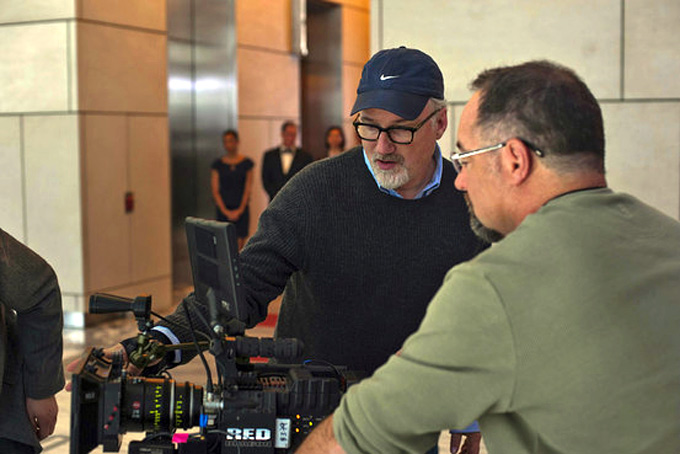 This past fall, the British Academy of Film and Television Arts interviewed David Fincher around the time “Gone Girl” hit theaters for "A Life In Pictures" event, and today you can watch the full interview on their site. In the interview, Fincher delves into his highs and lows and his early ambitions.
This past fall, the British Academy of Film and Television Arts interviewed David Fincher around the time “Gone Girl” hit theaters for "A Life In Pictures" event, and today you can watch the full interview on their site. In the interview, Fincher delves into his highs and lows and his early ambitions.
“I was one of those kids who was really committed to being on sets and watching how shit went down,” said Fincher. “I watched talented people who I liked and admired get kind of spun, and I vowed never to let that happen. I was like, ‘I want to know what every motherfucker in the room does.’”
Fincher recounted directing a commercial American Cancer Society and being “sodomized” for two years while making “Alien 3.”
“I made a crucial error. I listened to the people who were paying for the movie, and they said not to work with your friends, that the way to go about this is work with people who’ve done this time and time and time again,” said Fincher. “Basically, that translates into ‘meet a lot of people who are going to resent you and your age and are not going to want to take instruction from you and allow them to tell you what you can’t do.’”
When asked about sticking to the subversive elements in “Fight Club,” Fincher explained that everyone involved knew what they were getting into: “I don’t make movies in spite of the people who pay for them. I don’t fund my own films, and the people who do fund them, they’re not tricked. I’ve storyboarded the whole movie. I can take them through the thing and say, ‘here’s where we’re gonna feel a little weird…’ and they were ready to take some risks,” said Fincher.
The interview recaps Fincher’s storied career, warts and all. He described the filmmaking business in a nutshell: “It takes titanium, aluminum, steel, glass and lasers to do one thing: impart feeling. That’s all we do, to strangers, and we want to impart that feeling to everyone in the audience at the exact same time. And that’s the magic of cinema,” said Fincher.
Check out highlights from the interview below, and watch the entire interview at BAFTA’s website.





